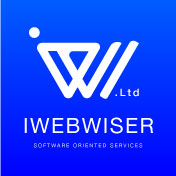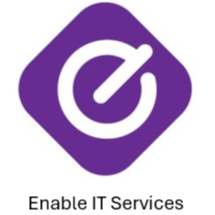
There are 33 Companies in South Africa
that provide Hosting and Cloud Services!
The level of IT spending in South Africa is forecast to increase in 2025 at a higher pace than the economy did in 2020. Although the general state of the economy has a direct impact on the growth of the ICT sector, its customers continue to invest in technology, and the sector consistently shows a growth rate that is higher than GDP.
Discover Top IT Companies in South Africa specialized in Hosting and Cloud and other related services. Find the best IT service providers for your projects.
Entrepreneurs often struggle to differentiate between cloud and hosted services, which may seem similar but differ in processes. Understanding these differences can help choose the right for your business. Pick the right home for your website involves considering technical aspects, reliability, cost, and customer support and other factors.
There are more than 330,000 web hosting providers all around the world, and this number is expected to grow as the Internet expands. Even with the fierce competition, new providers continue to enter the market. At the same time, data reveals that approximately 60% of all corporate data is now stored in the cloud. It has also witnessed a 10% increase compared to the previous year, 2021.
Handpicked companies • No obligation to hire • 100% risk-free
Featured Companies in South Africa
This month, the following Hosting and Cloud companies managed to provide an outstanding service and support. It's worth taking a look.
Multi-award winning software development company in Pretoria, providing world-class software and mobile development services.

ASG IT Support Services Verified Company
Sandton, South Africa Head office in: South Africa
Since 1988, ASG has been providing professional flat-rate IT support services to businesses in South Africa. Essentially, your all-in-one IT provider.

Innov8ive Software Solutions (Pty) Ltd Verified Company
Sandton, South Africa Head office in: South Africa
We are in this business to help other small businesses grow and move forward. Its as simple as that. There is no catch, no gimmick, just experience.
Explore Top Hosting and Cloud Companies in South Africa

Bellville, Western Cape, South Africa Head office in: India
iWebwiser offers digital transformation through advanced development and strategic marketing to help businesses reach their full potential.
Leading Website Design and Graphic Design

SevenC Managed IT Services Verified Company
Johannesburg, South Africa Head office in: South Africa
SevenC was founded in 1998 as a specialist IT Strategy and IT Support Services company in Sandton - Johannesburg, South Africa.
Get Inspired...
In the complex world of cloud computing, Dudobi helps you master the cloud. Our customised roadmaps guarantee hassle-free AWS.
Our core purpose is to facilitate the adoption of technological advancements within businesses transforming the way business is conducted.
Established in 1999, We provide complete IT Services, Support and Sales to Micro, Small & Medium Enterprise Businesses and Companies in South Africa.

Persistent Systems Verified Company
Johannesburg, South Africa Head office in: India
See Beyond, Rise Above
Core Logic ICT delivers smart IT solutions/support, development, and digital services, engineered to keep your business connected & competitive.

Enable It Services Verified Company
Midrand, South Africa Head office in: Australia
Enable IT Services, based in Perth, provides managed IT services, cybersecurity, and cloud integration for reliable IT infrastructures.
Services:
Rysen Group is a dynamic IT company and trusted MSP delivering tailored tech solutions and support to businesses.
IT Corporation delivers secure, scalable managed IT services including Microsoft 365, cybersecurity, cloud solutions and proactive support.
Oc2Tech IT Solutions provides IT Solutions including, Cybersecurity, MSP, Internet, Email, VoIP, Support on IT Networks, Backup, Pastel, IQ Retail.
Empowering Business Growth Through Expert Managed Services, we Safeguard your Business

MepTech Advertising Verified Company
Western Cape, South Africa Head office in: Zimbabwe
We are a web development ,social media marketing, Graphics design and an I.T company providing tailored solution for your brand and your l.T services
Unlimited 24/7 support at a fixed monthly cost. A trusted IT company in Durban. Reliable managed services & expert IT solutions for local businesses.

Johannesburg, South Africa Head office in: South Africa
We help small to medium-sized businesses implement and manage technology that drives digital transformation and moves people and business forward.
Welcome to Flowise, your trusted partner in App Development, Software Development, and Web Development.

Cape Town, South Africa Head office in: South Africa
Westech - IT Support Company that offers a selection of on-site & off-site or outsourced IT Support & Maintenance plans. Software, Hardware & more
Carver Technology offers tailored IT solutions that boost efficiency and security, empowering your business to thrive in a digital world.

Grahamstown, South Africa Head office in: United Kingdom
The world in which many businesses are marketing and communicating is complex, and changing fast. Audiences, channels, competitors, regulations – it’s...
Services:
- 1
- 2
Filter Hosting and Cloud Companies in South Africa by Cities
Find the right tech company near you or from a specific city. Some of the best companies might be located in smaller cities.
Find more Hosting and Cloud companies around the world
TechBehemoths is the world's most advanced and user-friendly platform to match IT Companies with real clients without hustle.
South African IT Industry: General Country Profile
The level of IT spending in South Africa is forecast to increase in 2025 at a higher pace than the economy did in 2020. Although the general state of the economy has a direct impact on the growth of the ICT sector, its customers continue to invest in technology, and the sector consistently shows a growth rate that is higher than GDP.
Cybersecurity is a high priority, with global statistics indicating that South Africa is the third most targeted country in the world for cyberattacks. Alleged IT-related procurement irregularities revealed through a number of commissions of inquiry and investigations continue to affect the reputation of some industry players. It is estimated that there are over 13,000 IT companies and over 3,000 electronics companies in South Africa, with the vast majority being small companies employing less than 50 people, according to Globe-News Wire.
Why Work With a South African IT Company
New and growing trends will provide significant opportunities for small and large players in the sector. These include growth in telecommunications, data center revenues and artificial intelligence, and the internet of things, where start-ups are expected to lead innovation. Digital transformation to improve customer experiences and online purchasing, fintech banking, blockchain, augmented reality, and virtual reality are some of the technologies that will disrupt the South African ICT industry in 2019. Improvements continue in 2025, with more than 120 million cellular mobile connections equal to 193% of the total population.
The industry is characterized by consolidation and convergence of companies within the IT sector, and between companies in the IT and telecommunications sectors.
What You Should Be Aware of When Working With South-African IT Companies
The growth projections of the IT market could be higher were it not for certain factors that seem to constrain it, including the cost sensitivity of customers, low expenditure by the public sector, market maturity, and bigger companies sourcing directly from the original equipment manufacturers.
IT market growth is also impeded by bigger companies that bypass IT vendors and go directly to OEMs for products and services. This impacts negatively on smaller companies that provide niche services within the broader IT sector.
How Reliable Are South African IT Companies
Despite the challenges facing the IT sector, its products and services have become part and parcel of everyday business and social life. The fast pace of innovation helps the sector to remain relevant while shaping the future of business and society.
How Does the South-African IT Industry Relate to the Neighboring Countries?
The South African IT market, comprising hardware, packaged software, and IT services submarkets, is regarded as one of the most developed and sophisticated within the continent. South African IT companies rank among world leaders in areas such as mobile software, electronic banking services, pre-payment, revenue management, fraud prevention systems, and the manufacture of set-top boxes, according to a report provided by the South African Department of Communications.
What is Hosting and Cloud and what are its benefits for your projects?
Entrepreneurs often struggle to differentiate between cloud and hosted services, which may seem similar but differ in processes. Understanding these differences can help choose the right for your business. Pick the right home for your website involves considering technical aspects, reliability, cost, and customer support and other factors.
There are more than 330,000 web hosting providers all around the world, and this number is expected to grow as the Internet expands. Even with the fierce competition, new providers continue to enter the market.
At the same time, data reveals that approximately 60% of all corporate data is now stored in the cloud. It has also witnessed a 10% increase compared to the previous year, 2021.
Cloud Services
Cloud services are computing services provided by third-party hosts through the internet and on-demand. They allow customers to access and utilize remote computing resources effortlessly. There are three main categories of cloud: Software as a service (SaaS), Platform as a service (PaaS), Infrastructure as a service (IaaS).
Benefits of Using Cloud-Based Services
Cloud services offer several advantages that are not available with hosted solutions:
-
IT Optimization: With cloud services, the provider is responsible for building and maintaining all the hardware, so your IT department doesn't have to manage servers or install and update software on individual computers. Additionally, the provider is responsible for ensuring security and resolving any problems that might come up.
-
Budget-friendly approach: Cloud services offer a cost-efficient approach where you only pay for what you use. There is no need to invest in hardware or purchase software licences that may end up being unused by your team.
-
Business system integration: To integrate various third-party cloud solutions, you can streamline workflows and enhance team collaboration and productivity. For instance integrating your cloud communications platform with a CRM. Doing so ensures employees have access to customer information before they answer incoming calls and automatically logs all calls into the CRM.
-
Increase agility and scalability: Cloud services let you make changes in just a few clicks, whether you need to shift workflows, add new features and functionality, or change the number of users.
-
Support AI, predictive analytics, and IoT: With your data in the cloud, you can easily apply these advanced technologies to improve efficiency, gain new insights, and future-proof your business.
-
Support remote workforces: The workforce can access cloud services anytime, anywhere, using any device, with just an internet connection and login credentials.
Hosting Services
Hosted services, much like cloud-based solutions, are managed by a third-party provider and accessed through the internet. With hosted solutions, the provider owns and maintains physical servers in a private location rather than relying on a public cloud. This allows the service to be accessed online without the need for installing hardware or software. Users typically access it through a virtual private network or remote desktop.
Benefits of Hosting Services
Hosted services offer some of the same advantages as cloud solution, including:
-
Remote access and the ability to integrate with certain other cloud solutions. Because the software and hardware are maintained by the provider, there's also less for IT to manage than with traditional computing solutions (but typically more than with cloud solutions).
-
Offers greater customization options compared to cloud services, depending on the setup and service agreement.
-
Provide more control over security protocols, which is particularly beneficial for companies operating in highly regulated industries.
To Sum Up
Cloud services are a more cost-effective option compared to hosting services. They are easier to set up, manage, and maintain. Although hosting services offer more control, they require additional IT work and often come at a higher price. However, it's important to analyze your specific business requirements before deciding on a hosting type. At the moment Techehemoths has almost 800 Hosting & Cloud service providers.
Take a look at their profiles and feel free to contact them, the smart filters will also help you, Moreover, you can submit your project and our team will hand-pick and send you the best matching service providers, and you will get free quotes in about 1-hour. Also, if you want to learn more about cloud and hosting services, check out our blog for additional information.













